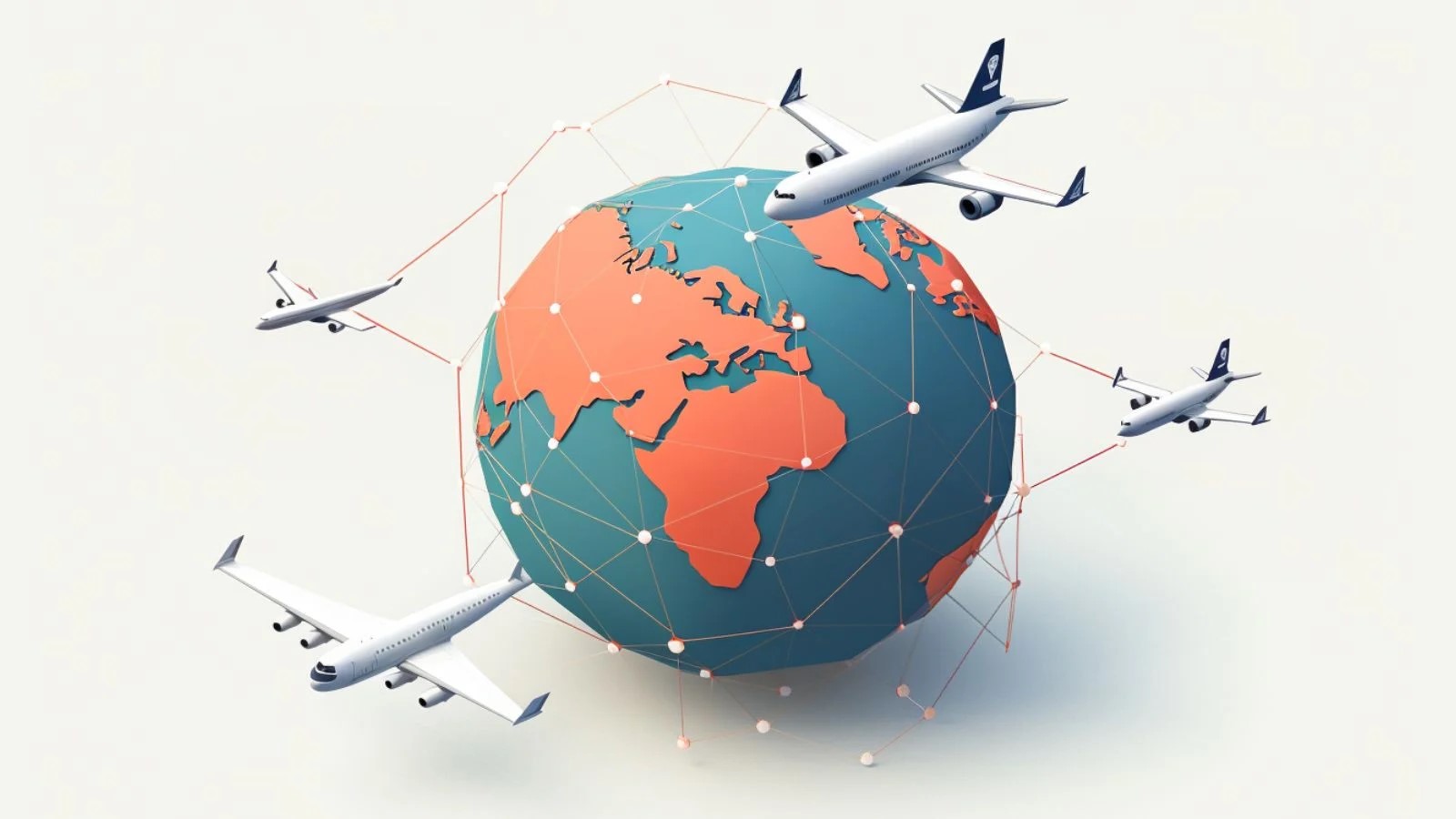
Ever wondered how airlines manage to connect the world seamlessly? Airline global operations are a marvel of modern logistics, technology, and coordination. From the moment you book a ticket to the time you land at your destination, countless processes work behind the scenes to ensure a smooth journey. Airlines operate in a complex web of international regulations, weather patterns, and time zones. They coordinate thousands of flights daily, manage fleets of aircraft, and handle millions of passengers. Curious about the hidden world of aviation? Let's dive into 17 fascinating facts about how airlines keep the world connected. Buckle up and get ready for takeoff!
Key Takeaways:
- Airlines operate globally, with fleets spanning over 200 countries and conducting 5,000 flights daily, showcasing the immense scale of their operations.
- Modern aviation focuses on safety, sustainability, and passenger experience, with advanced technology, environmental initiatives, and economic contributions shaping the industry's impact.
The Scale of Airline Global Operations
Airline operations span the globe, connecting continents and cultures. Let's dive into some fascinating facts about how airlines manage their extensive networks.
-
Global Reach: Airlines operate in over 200 countries, making air travel one of the most international industries.
-
Fleet Size: The largest airlines have fleets exceeding 800 aircraft, ensuring they can cover vast distances and numerous destinations.
-
Daily Flights: Major airlines conduct over 5,000 flights daily, showcasing the immense scale of their operations.
Technological Advancements in Aviation
Technology plays a crucial role in modern aviation, enhancing safety, efficiency, and passenger experience.
-
Advanced Navigation Systems: Modern aircraft use sophisticated GPS and autopilot systems, allowing for precise navigation and reduced pilot workload.
-
In-Flight Wi-Fi: Many airlines now offer in-flight Wi-Fi, enabling passengers to stay connected even at 35,000 feet.
-
Fuel Efficiency: Newer aircraft models are designed to be more fuel-efficient, reducing both costs and environmental impact.
Safety Measures and Protocols
Safety is paramount in aviation, with stringent measures in place to protect passengers and crew.
-
Regular Maintenance: Aircraft undergo regular and rigorous maintenance checks to ensure they are in optimal condition.
-
Pilot Training: Pilots receive extensive training, including simulations of various emergency scenarios, to prepare them for any situation.
-
Security Screening: Airports implement thorough security screening processes to prevent any potential threats from boarding flights.
Environmental Impact and Sustainability
Airlines are increasingly focusing on sustainability and reducing their environmental footprint.
-
Carbon Offsetting: Some airlines offer carbon offset programs, allowing passengers to compensate for their flight's emissions.
-
Biofuels: Research into biofuels is ongoing, with some airlines already conducting test flights using sustainable fuel sources.
-
Recycling Programs: Airlines are implementing recycling programs for in-flight waste, reducing the amount of trash sent to landfills.
Passenger Experience Enhancements
Airlines continuously strive to improve the passenger experience, making air travel more comfortable and enjoyable.
-
In-Flight Entertainment: Modern aircraft are equipped with personal entertainment systems, offering movies, TV shows, and games.
-
Comfortable Seating: Airlines are redesigning seats to provide more legroom and better ergonomics, enhancing passenger comfort.
-
Onboard Dining: Many airlines offer gourmet meals and a variety of dining options, catering to different dietary preferences.
Economic Impact of Airlines
The airline industry significantly contributes to the global economy, creating jobs and facilitating trade.
The Final Descent
Airline global operations are a fascinating mix of logistics, technology, and human effort. From the intricacies of air traffic control to the massive scale of airport operations, every aspect plays a crucial role in ensuring safe and efficient travel. Understanding these facts not only gives us a deeper appreciation for the industry but also highlights the complexities involved in getting passengers from point A to point B. Next time you board a plane, remember the countless hours of planning, coordination, and innovation that make your journey possible. Whether it's the sophisticated navigation systems, the rigorous safety protocols, or the dedicated airline staff, each element is essential. So, as you buckle up and prepare for takeoff, take a moment to appreciate the marvel of modern aviation. Safe travels!
Frequently Asked Questions
Was this page helpful?
Our commitment to delivering trustworthy and engaging content is at the heart of what we do. Each fact on our site is contributed by real users like you, bringing a wealth of diverse insights and information. To ensure the highest standards of accuracy and reliability, our dedicated editors meticulously review each submission. This process guarantees that the facts we share are not only fascinating but also credible. Trust in our commitment to quality and authenticity as you explore and learn with us.


